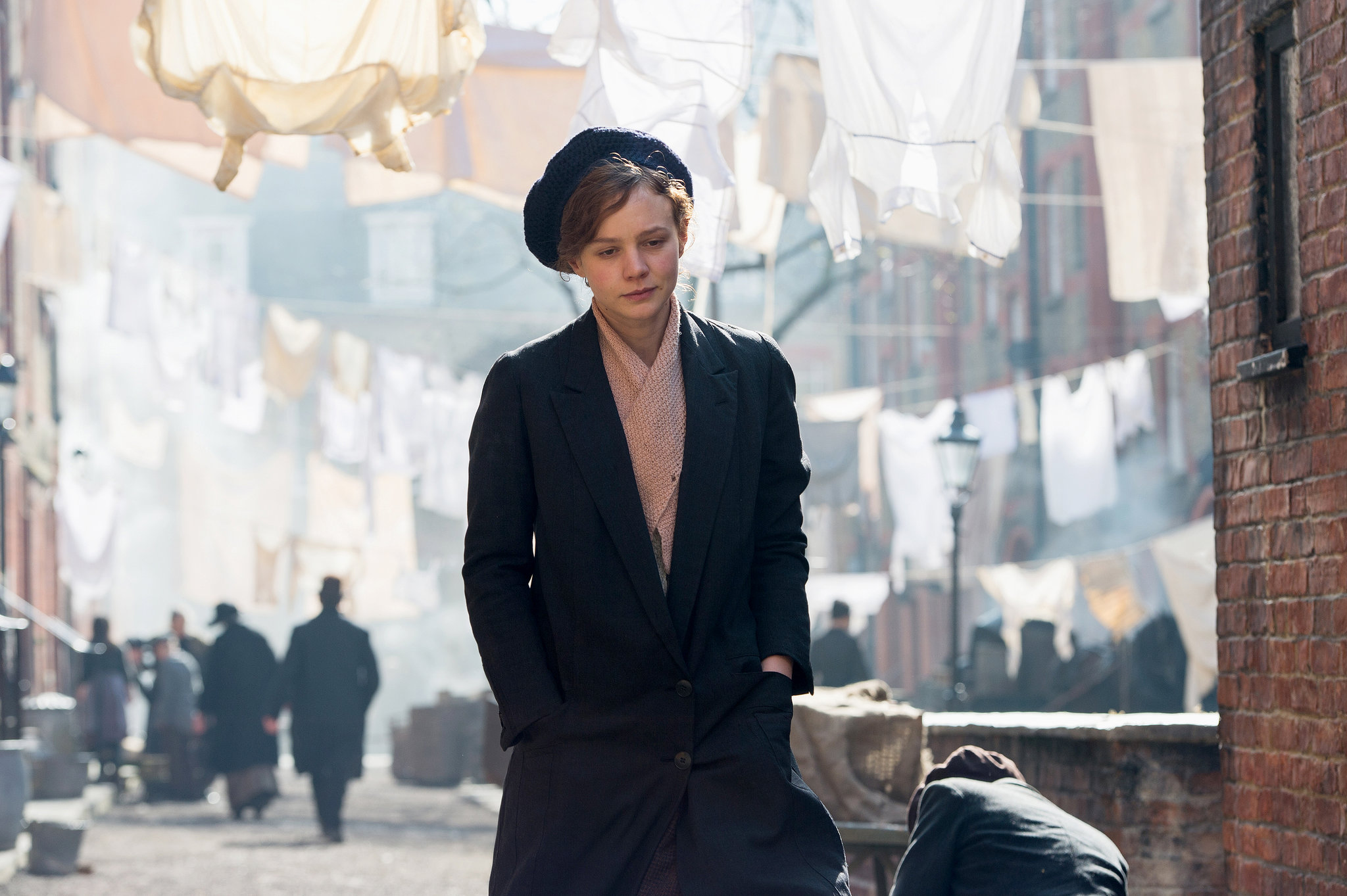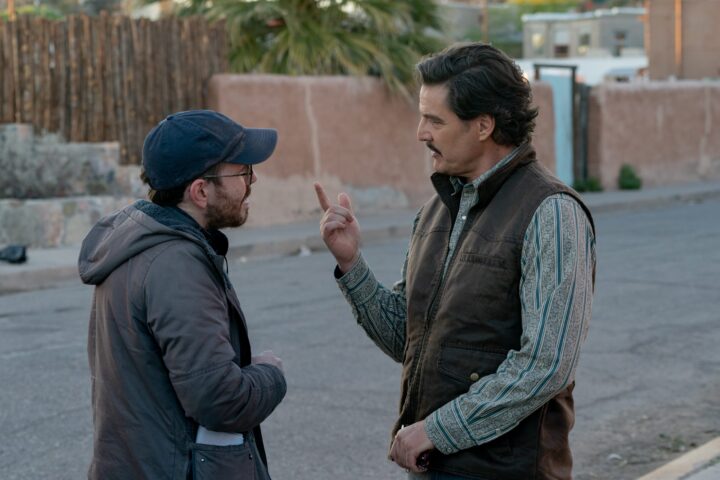Director Sarah Gavron has taken what might have been a tony period piece about women standing up to oppression in 1912 London and fashioned an urgent, immediate and gripping war movie about loss and sacrifice. It’s a battle, Suffragette says, to effect social and political change, and the spoils just might be your reputation, children and life.
With a screenplay by Abi Morgan (The Queen), the picture’s London of the time is one where iron fisted men rule women’s minds and bodies both in sweatshops and from Parliament, so afraid of the Pandora’s box that might open if women were to vote that most are relegated to hideously painful subjugation and ridicule, constantly reminded that they are of sub-intellect and that any subversion will be met with disastrous consequences.
One such woman is young Maud Watts, played with heroic fire by Carey Mulligan, born into a slave-labor laundry and orphaned at age 4. Working in conditions that can only be described as cruelly sexist and physically oppressive in ways that would shock both Dickens and Sinclair, Maud has made a life of quietly enduring her unfortunate lot. Her husband, Sonny (Ben Whishaw) works alongside her, but turns a blind eye, the pair striving to provide for their young son.
But the tide for women might be turning, led by the galvanic, by-any-means-necessary tutelage of movement leader Emmeline Pankhurst (Meryl Streep, making the most of her three minute cameo), who incites an underground rebellion organized by chemist Helena Bonham Carter.
Quietly dutiful Maud slowly awakens to this rebellion, wholly unaware of her involvement’s costs until she loses her job, her marriage falls apart and her young son is put up for adoption—all of which she has no legal right to contest. Mulligan is shattering in a critical scene where her boy is shuttled off with a well-to-do family, likely gone forever.
For Maud, what begins as reluctant testimony to Parliament quickly escalates into full-fledged involvement, which includes clandestine meetings, broken windows, public protests, bombings and increasingly amplified tensions between the all-but-blacklisted women and the police, led by a hard line Brendan Gleeson, who slowly begins to shift allegiances while developing a connection with hunger-striking Maud, brutally force-fed on his watch.
In another great performance following her commanding turn in this year’s Far from the Madding Crowd, the astonishing Mulligan patiently, subtly uncorks a lifetime of pent-up frustration, all but martyring herself for a cause that has no guarantee of any significant gains. It’s quite a Norma Rae performance, and Mulligan’s scenes with Gleeson are the picture’s best, as a girl who “means nothing to the world” takes on the laws she had nothing to do with creating.
In addition to the weary, do-what-it-takes fortitude from the excellent Bonham Carter, fellow laundress Ann-Marie Duff is incendiary as the wife who pays for her involvement as the object of her husband’s barbarism, and a briefly used but effective Romola Garai is the wealthy woman under her husband’s thumb who figures importantly in a late picture development.
Gavron, the low-profile British director of a few smaller pictures including 2007’s lovely Brick Lane, isn’t interested in the standard aesthetic civility or manners often the hallmark of period pictures. Instead, she gets deep inside London’s political and social pressure cooker of the time, shooting with cinematographer Ed Grau on grainy 16mm film, rendered in often grimy, handheld, widescreen compositions.
Suffragette is shocking in its climax and contains real-life newsreel footage of its dramatic denouement, and it’s a film that, like last year’s glossier Selma, argues for civil rights. In today’s world where equal pay for women is still the exception to the rule, the picture, and Mulligan’s burn-through commitment to the role, are unmissable.
3 1/2 stars.



